While the majority of Myanmar people and the international community decry the military junta led by Min Aung Hlaing, which has killed thousands of people by various means including by gun, by airstrike, by fire and by ramming, there are some civilians who applaud the coup leader. If Min Aung Hlaing is to be described as the murderer-in-chief for all his crimes, those who have aided and abetted him can be called the accomplices of the murderer-in-chief.
Those accomplices can be categorized into three groups. The first group consists of old political turncoats who are on the regime’s administrative body, the State Administration Council, and its cabinet, and whose political profile is dead. The second group consists of failed, selfish technicians who are serving as close advisers to Min Aung Hlaing. And the last group is of Buddhist monks who are indulging themselves in obeisance from Min Aung Hlaing despite the fact that thousands of people, many of whom might have donated alms to them, were killed by his regime.
Those who belong to the first group are U Thein Nyunt, U Khin Maung Swe, Mahn Nyein Maung, Daw Aye Nu Sein, Jeng Phang Naw Taung, Moung Har, Sai Lone Saing, Saw Daniel, Banyar Aung Moe and U Shwe Kyein. The most controversial figure might be Daw Thet Thet Khaing, who serves as Social Welfare Minister in the regime’s cabinet.
Those in the second group are former United Nations staffer Daw Yin Yin Nwe, Salai Ngun Cung Lian, Daw Yin Yin Oo—who is a daughter of former President Dr. Maung Maung, a protégé of late military dictator Ne Win—and Daw Khin Oo Hlaing, who serves as the joint-secretary of the junta-appointed defense team for the Rohingya genocide case at the International Court of Justice (ICJ).
The last group comprises Sitagu Sayadaw, Ashin Chekinda, Vasipake Sayadaw U Kovida and the former chairman of the nationalist group Ma Ba Tha, Ashin Tilawkar Biwonsa.
They have one thing in common; they would rather offend the people than ruin their relationships with military leaders. Let’s take a closer look.
SAC and cabinet members
The SAC is a 19-member body, of whom 10 are civilians representing the so-called eight major ethnic groups in Myanmar—the Kachin, Kayah, Karen, Chin, Mon, Bamar, Rakhine and Shan—as well as the Ta’ang. What have they been doing as SAC members? Suffice it to say they have discussed, at consecutive SAC meetings, how to perpetuate the military dictatorship in Myanmar.
On the agenda at meetings with Min Aung Hlaing are quashing the resistance of the People’s Defense Force (PDF), replacing the First-Past-The-Post electoral system with Proportional Representation (PR), auditing the cost of hiring foreign advisers and investigating national security breaches under the ousted National League for Democracy (NLD) government, persecuting the NLD, enacting a law against foreign interference, and countering the reports of independent media with junta-controlled media. In short, how to perpetuate military rule.

One of the members, U Thein Nyunt even wished death and destruction upon the parallel National Unity Government (NUG) as well as its legislative body, the Committee Representing Pyidaungsu Hluttaw (CRPH), and its armed wing, the PDF, in his New Year’s message.
He was previously a member of the NLD’s Central Executive Committee. When the NLD boycotted the 2010 general election, he left the party and co-founded a new one, the National Democratic Force (NDF), together with U Khin Maung Swe, who is also on the SAC now.
He was elected to the Lower House, and founded the New National Democracy Party (NNDP) less than a year later. He has allied himself with the military proxy USDP after losing to the NLD in the 2015 poll and spent the years prior to the coup finding fault with the NLD government. In the run-up to the 2020 election, he made statements encouraging a military coup.
The 77-year-old also lost in the 2020 poll, but was appointed to the SAC after last year’s coup.

NDF chairman U Khin Maung Swe has written pro-junta pieces in the regime-controlled newspapers. The pieces often warn about growing foreign interference and attempts to break up the Union of Myanmar by driving by a wedge between the people and Myanmar’s military, which U Khin Maung Swe calls the protector of the country.
In an interview with the BBC in April last year, by which time the military regime had gunned down more than 700 peaceful protesters, U Khin Maung Swe said it had not been Min Aung Hlaing’s intention to go that far, and he might have been sorry about their deaths, adding that Ming Aung Hlaing was not a person who would be happy with the death of a citizen.
The 79-year-old U Khin Maung Swe left the NLD in 2010 for the same reason as U Thein Nyunt. He later sided with Myanmar’s military, smearing Daw Aung San Suu Kyi and the NLD.

Mahn Nyein Maung, a former member of the Central Committee of the Karen ethnic armed group the Karen National Union (KNU), which has fought Myanmar’s military for decades, once said he would abandon the armed struggle to join the Parliament for the interests of the people. He is, however, serving the interests of the military generals now.
While the regime was attacking Lay Kay Kaw town and surrounding villages in Karen State with artillery and gunships, Mahn Nyein Maung was reading Min Aung Hlaing’s Karen New Year message wishing the Karen people well, at an event marking the occasion in Ayeyarwady Region earlier this month.
Mahn Nyein Maung contested the 2020 poll on the ticket of the Kayin People’s Party in his native town of Pantanaw in Ayeyarwady. He called the Union Election Commission (UEC) and the poll dishonorable after he lost his race to an NLD candidate. As a Karen revolutionary, he was given a life sentence under the former military dictator Ne Win. His revolutionary career took a twist when he was again given a life sentence under the U Thein Sein government for alleged ties to unlawful associations and high treason. Mahn Nyein Maung praised U Thein Sein as his benefactor after he was granted a pardon less than one year into his jail term. The KNU said Mahn Nyein Maung no longer has ties with the group.

Following the coup, the regime invited political parties to cooperate with it. Some individual politicians rejected the offer and some willingly accepted. Arakan National Party spokeswoman Daw Aye Nu Sein accepted the offer, citing the interests of her Rakhine people. Jeng Phang Naw Taung, an ethnic Kachin; ethnic Chin former bank manager Moung Har; former Shan State parliament speaker and USDP member Sai Lone Saing; vice chair of the Kayah State Democratic Party Saw Daniel; Dr. Banyar Aung Moe from the Mon Unity Party; and Shwe Kyein an ethnic Ta’ang who is a member of the leading body of the Palaung Self-Administered Zone in Shan State, became SAC members.

Saw Daniel was sacked from his party for his cooperation with the regime, and Ta’ang civil society organizations have blacklisted Shwe Kyein. The European Union has also imposed sanctions against all the civilian members of the SAC except Shwe Kyein.
In the regime’s cabinet however Daw Thet Thet Khaing is indisputably the most controversial figure thanks to her political dishonesty.
As a former outspoken parliamentarian from the NLD, she left the party in 2019 and established the People’s Pioneer Party. Like U Thein Nyunt and U Khin Maung Swe, she was critical of her former party, claiming that it did not put the right people in the right places, that its performance was poor as a government, and that there was undemocratic centralization within the party.
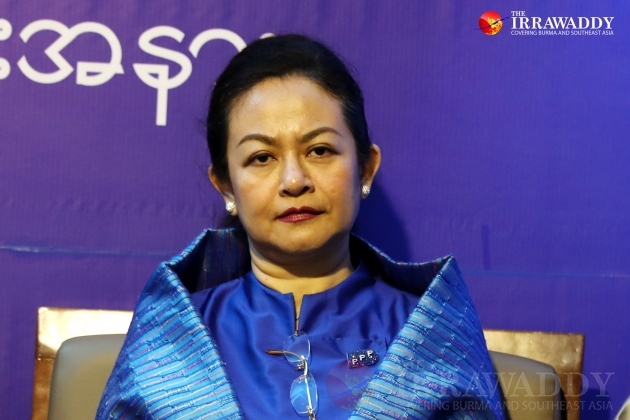
In the run-up to the 2020 election, she said the fact that 25 percent of parliamentary seats were held by the military was an opportunity for politicians to build ties and more closely cooperate with the military.
Explosions took place at a construction site and jewelry shop run by her family soon after she became a minister in the military regime. On Jan. 4, Myanmar’s Independence Day, her husband was awarded an honorary title by coup leader Min Aung Hlaing.
Regime advisers
Advisers to Min Aung Hlaing are the prime culprits in the junta’s killings of civilians. Min Aung Hlaing has seven advisers on his advisory board—three of them are military officers and four (three women and a man) are civilians.
The regime provides the civilian advisers with a remuneration package including a monthly salary of 1 million kyats (about US$560), free accommodation and other benefits.
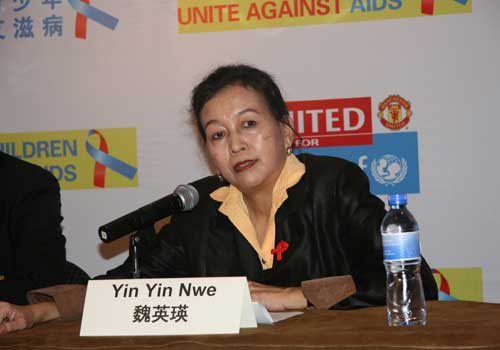
Daw Yin Yin Nwe, the former chief education adviser to the U Thein Sein government, is one of three female advisers to Min Aung Hlaing. She is an ex daughter-in-law of late military dictator Gen. Ne Win. She is a geologist, who worked with UNICEF from 1991 to 2011. In August 2012 she was appointed as a member of an Inquiry Commission investigating Rakhine State’s communal violence that same year.
In response to calls for a boycott of education under military rule last year, Daw Yin Yin Nwe drew comparisons with the Taliban, saying “the terrorists who support the NUG, CRPH and PDF are pushing Myanmar to Talibanization like Taliban terrorists from Afghanistan and Pakistan.”
She also denounced doctors, professors and education staff who refuse to work for the regime, but kept total silence on the junta’s killing of civilians. It is not clear what pearls of wisdom she has been providing to Min Aung Hlaing, but the 70-year-old has often written pieces in junta-controlled newspapers, showing her support for civil servants who are working for the regime, and comforting those who have faced social punishments from others for supporting the regime.

While many ethnic Chin people are suffering under the military regime, which has carried out airstrikes and torched houses and churches in Chin State, ethnic Chin man Salai Ngun Cung Lian is providing advice to Min Aung Hlaing.
At press conferences with foreign diplomats and UN agencies, and talk shows aired on junta-controlled TV channels, he argues in an assertive voice that the military took power in line with the 2008 Constitution and that it would hold a free and fair election and return power to the winning party.
He received his bachelor’s degree in international economics and cultural affairs from Valparaiso University. He went on to earn a master’s degree and a doctor of law degree from Indiana University’s Mauer School of Law. He emigrated to the US in October 1996, and is a US citizen.
He served as a legal counsel for the defunct Myanmar Peace Center and Rakhine State Inquiry Commission under President U Thein Sein’s administration from 2012 to 2015.
Under the NLD government, he together with the regime’s current Foreign Minister U Wunna Maung Lwin and Immigration Minister U Khin Yi appeared at debates and spoke ill of Daw Aung San Suu Kyi and the NLD while praising the military.
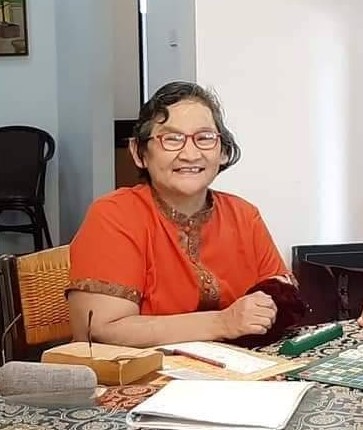
Daw Yin Yin Oo worked as deputy director general of the Foreign Ministry under President U Thein Sein’s administration. She retired in 2016 before the NLD government took office. She is the daughter of late president Dr. Maung Maung, who ruled for a month following the 1988 nationwide uprising.
Daw Khin Oo Hlaing is said to be an international criminal law expert. She is the joint-secretary of the junta-appointed defense team to defend Myanmar in the Rohingya genocide case at the ICJ.
‘Spiritual’ figures who back the regime
Some Buddhist monks abandoned the monkhood to join the armed resistance against the military junta following last year’s coup. But some high-profile monks including Sitagu Sayadaw, Ashin Chekinda, Vasipake Sayadaw U Kovida and former Ma Ba Tha chair Ashin Tilawkar Biwonsa are flocking together.

Once highly venerated by many in Buddhist-majority Myanmar, Sitagu Sayadaw has fallen into disgrace in the eyes of his former followers since the February coup due to his ties with the coup leader.
While the junta killed hundreds of peaceful protesters in the months that followed the coup, Sitagu Sayadaw never failed to receive Min Aung Hlaing and his wife at his monastery at Sagaing Hill. When Min Aung Hlaing took blessings from Myanmar’s senior monks for his construction of the world’s largest Buddha statue in Naypyitaw last March, the monk was there and received donations from the coup leader.
The monk accompanied the junta’s No. 2 man Vice Senior General Soe Win as he traveled to Russia last September to supervise the construction of a replica of Bagan’s famous temple, Shwezigon Pagoda, in Moscow. He stayed for four months at the Myanma Theravada Buddha Vihara Monastery in Moscow, to which Min Aung Hlaing and his wife, among others, are donors.
Recently, the 85-year-old monk received donations from Myanmar’s military for his Buddhist missionary university in Taungoo.
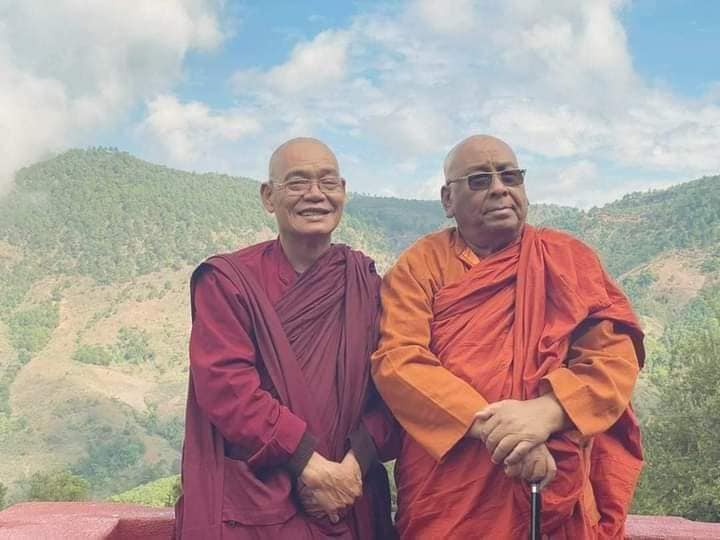
Another monk is U Kovida, commonly known as Vasipake Sayadaw, who is believed to be the astrological adviser to the coup leader. The monk has been accused of advising the senior general, who has been his follower since 2006 when the general was serving as a local commander of the Myanmar military in eastern Shan State, to tell security forces to shoot protesters in the head. Most of the anti-regime protesters killed in the early days of the junta crackdown had bullet wounds to the head.
The monk was consequently singled out for criticism at anti-regime protests, with some protesters attaching photos of him to htamein—women’s sarongs—and hanging them in public places to express their wrath. The 64-year-old monk has close ties with Sitagu Sayadaw.
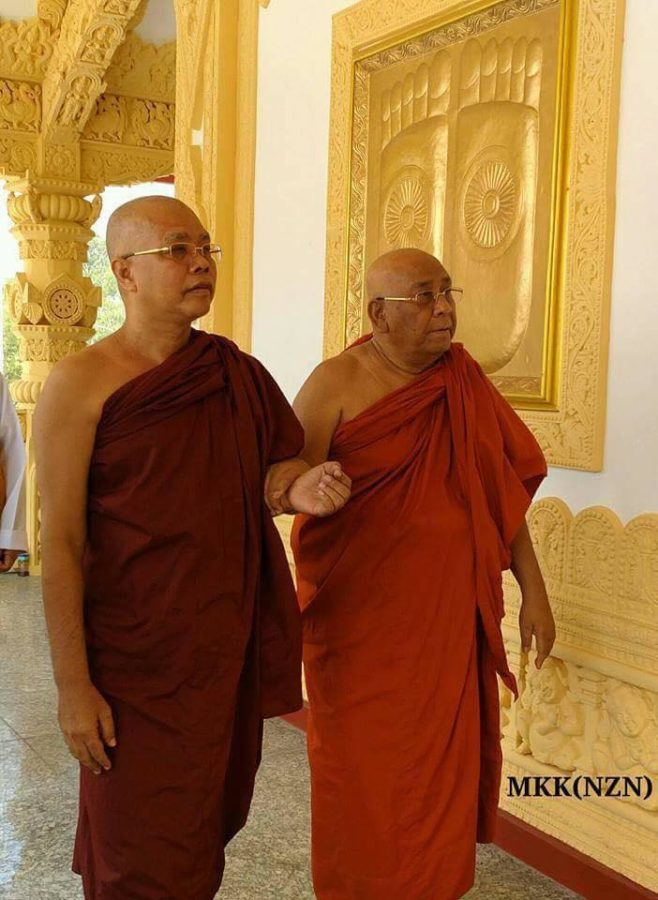
Ashin Chekinda has emerged as an accomplice of Min Aung Hlaing since the coup. He is known for his summer school programs, in which he teaches teenagers Buddhism and other subjects, attracting hundreds of youngsters annually. The monk has barely appeared in public since the coup and has been tight-lipped about the regime’s brutal crackdowns on peaceful protesters, some of which were the same age as his summer school students.
Together with U Kovida, the monk was present at a ceremony marking the renovation of the Kyaik Devi pagoda by Min Aung Hlaing and his family in Hlegu Township on the outskirts of Yangon Region in December.
Earlier this month, he received an honorary religious title from the coup leader. Min Aung Hlaing also recently amended the International Theravada Buddhist Missionary University Law to allow the monk to hold the position of university deputy rector for 15 consecutive years.

Ashin Tilawkar Biwonsa, the former chairman of the Ma Ba Tha, is also close to Min Aung Hlaing. In May 2017, Ma Ba Tha was declared an unlawful association by the state-backed cleric organization Ma Ha Na and banned from operating under its original name.
Since then, Ma Ba Tha has rebranded itself as the Buddha Dhamma Charity Foundation. In 2019, the military officially donated 30 million kyats to the foundation. The Ywama Monastery in Yangon’s Insein, which is headed by U Tilawkar Biwonsa, is in fact a bastion of Ma Ba Tha nationalists and a venue for Ma Ba Tha-organized events. Min Aung Hlaing recently conferred an honorary religious title on U Tilawkar Biwonsa.
On Dec. 5 last year, Min Aung Hlaing visited the monk at his monastery in Insein. The monk reportedly told the coup leader he was glad that Min Aung Hlaing is promoting Buddhism, and wished he could promote Buddhism more. Quite coincidentally, junta soldiers drove into a group of anti-regime protesters from behind in Yangon’s Kyimyindaing Township while the monk was receiving Min Aung Hlaing.
Ma Ba Tha constantly criticized the NLD government and Daw Aung San Suu Kyi for failing to protect Buddhism. Min Aung Hlaing once offered meals to prominent Ma Ba Tha figure and ultranationalist monk U Wirathu, who once said, “Military lawmakers should be worshipped like God.”
Those individuals and monks will go down in history as accomplices of the murderous military.
You may also like these stories:
The Day Hired Mobs Began Protesting the Military Proxy Party’s 2020 Election Loss
The Day Myanmar Military Chief Makes First Move for Coup
The Day Election Winners and Losers Discussed Myanmar’s First Peaceful Transfer of Power

















